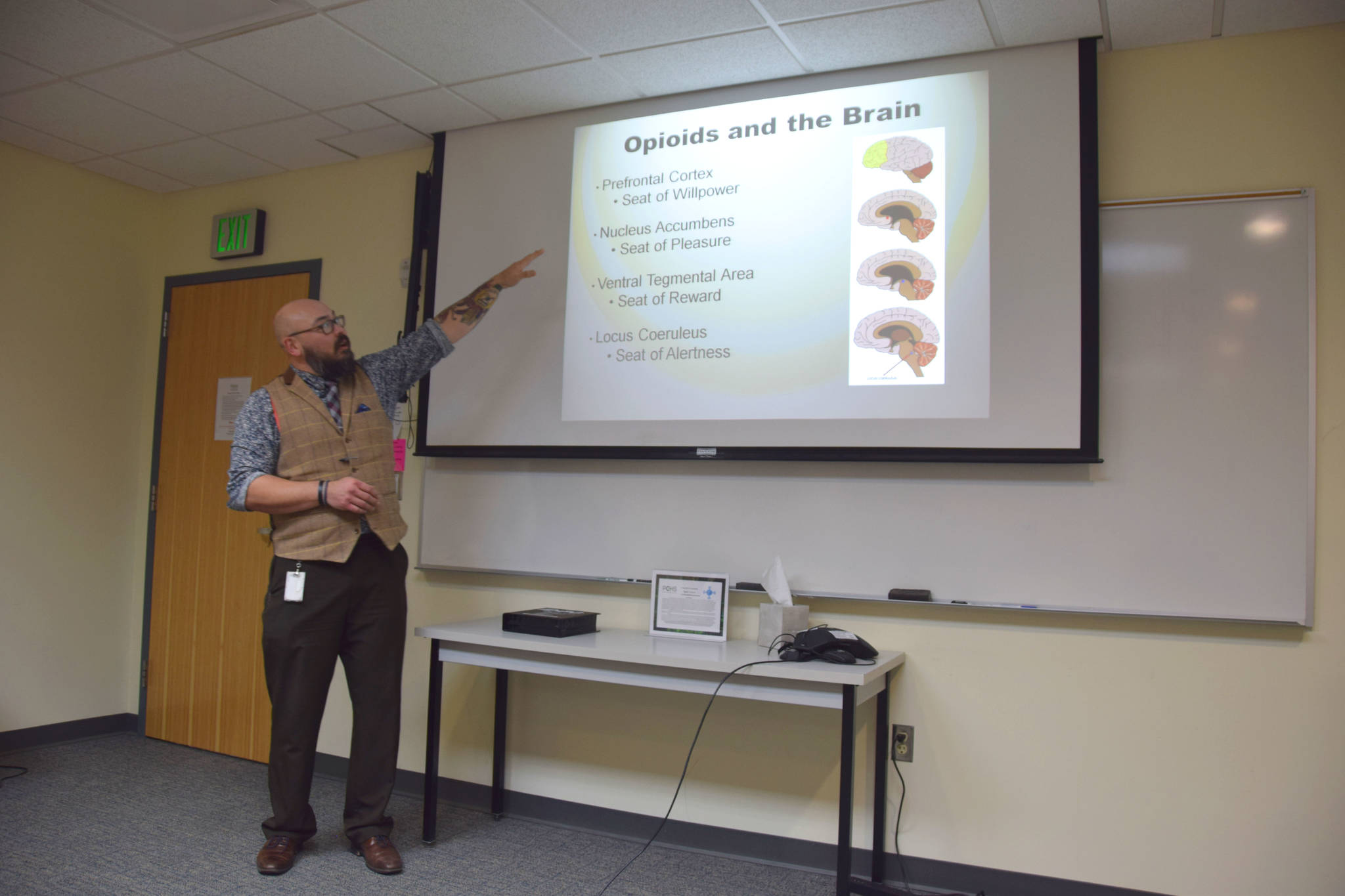As part of an ongoing effort to combat the nationwide epidemic of opioid overdoses, Peninsula Community Health Services has begun offering public informational sessions where people can receive instruction in identifying an opioid overdose, as well as the tools available to potentially save a life. The informational sessions will revolve around Narcan, a medication that can temporarily reverse the effects of an opioid overdose, and PCHS will give participants Narcan kits to take home after the session.
Narcan comes in the form of a nasal spray and temporarily reverses the effects of an overdose. When an opioid is in someone’s system, it attaches itself to receptors in the brain that control, among other things, motor functions and breathing. Narcan works by pushing the opioids off the receptors and replacing them so the opioids can not reattach.
Fred Koski, who led the informational session, explained the process using a game of musical chairs as an example.
“Imagine there is an opioid sitting in each chair after the music stops. Narcan comes along, kicks the opioid out of the chair, and takes a seat so that the opioid can’t come back.”
Koski said that these informational sessions are designed to educate people on opioids as well as addiction and its effects on the brain. He also said that there is a lot of new information regarding these topics available to health professionals, but much of the information that the public has access to is outdated or inaccurate. According to Koski, opioid overdoses were the number one cause of accidental death in Alaska in 2016, surpassing even car accidents.
People tend to think of heroin when discussing opioid overdoses, but in the last decade there has been a sharp rise in opioid overdoses caused by prescription painkillers and, more recently, fentanyl. Several state governments have filed lawsuits against pharmaceutical companies, including Alaska, which filed a lawsuit on Jan. 28 against Mallinckrodt LLC.
Koski said that lawsuits like this one are important for seeking justice and can potentially give states the extra funds they need to put towards treatment. However, he sees the fight on the ground — treating addiction and preventing overdoses day to day — as more important in the moment.
“It’s a little like closing the barn door after the horses get out,” said Koski. “The problem is here. So what do we do now that it exists?”
To that end, Koski said that distributing Narcan kits to the community and educating people on how to use them has been essential in preventing overdose deaths. It is important to note that Narcan is not a permanent solution and its effects only last about 30 minutes, after which the person will potentially lapse back into the overdose. This 30-minute window is when 911 should be called so that the person can get to the emergency room and receive further treatment.
In addition to distributing Narcan kits after each informational session, the Division of Public Health makes them available for free at Kenai Public Health and PCHS in Soldotna. PCHS will be offering these informational sessions on the last Thursday of every month.
Aside from how to administer Narcan, the informational sessions also cover the difference between dependence and addiction, the factors that make certain people more prone to addiction than others, the effects of opioids on the brain and body and how to identify signs of an opioid overdose.
• By BRIAN MAZUREK, Peninsula Clarion

